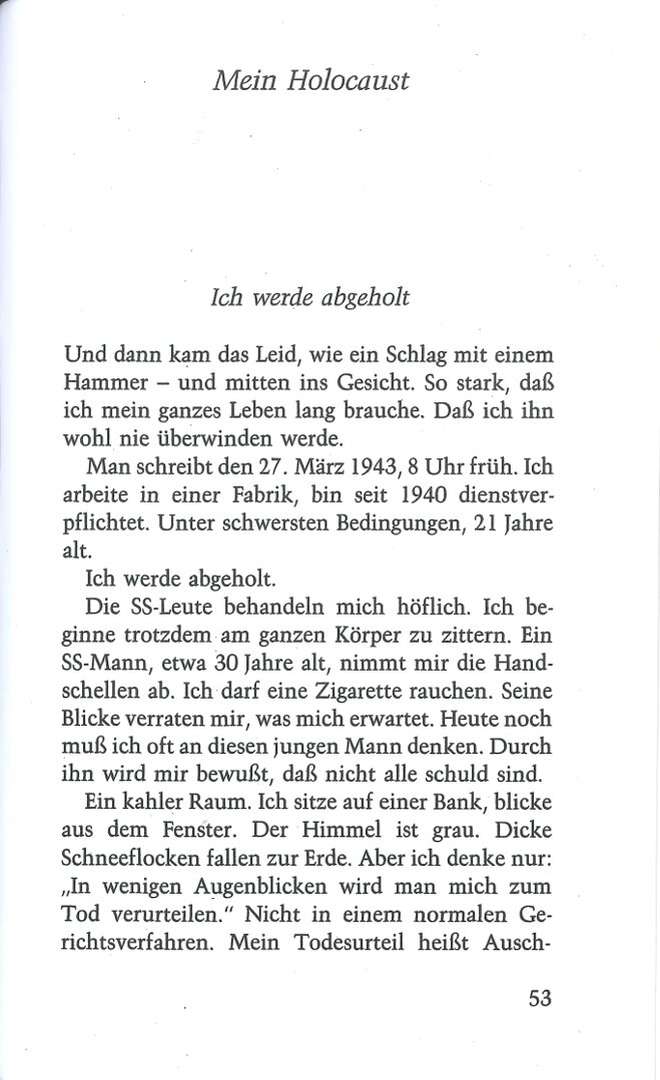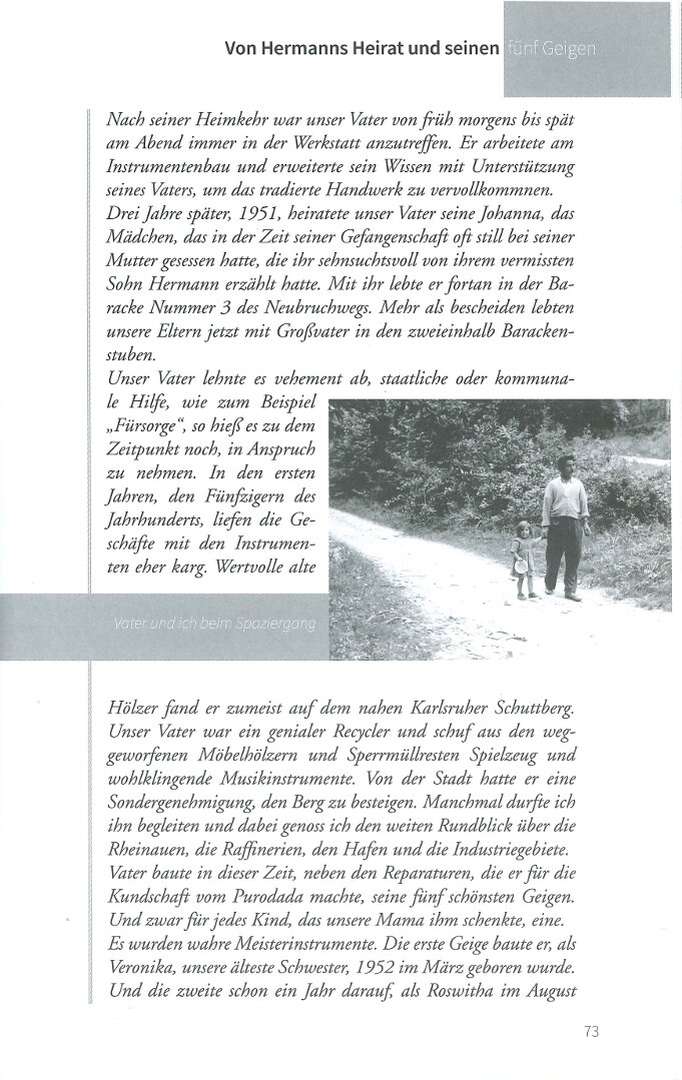Literary works by Sinti and Roma in Germany emerged in the mid-1980s in response to the continued lack of official recognition of the victimisation of Sinti and Roma in the Third Reich. Pioneering narratives by German Sinti and Roma writers addressed the persecution that the writers and their families had experienced during the Holocaust. Because oral tradition as a means of transmitting family stories and memories proved inadequate for describing the trauma of the concentration camps and the loss of so many lives, writing offered a medium with which to bear witness to and communicate the writers’ experiences of the Third Reich at a time when they continued to be largely ignored.
Romani Literature in Germany
Latscho Tschawo’s book Die Befreiung des Latscho Tschawo. Ein Sinto-Leben in Deutschland (The Liberation of Lacho Chavo. The Life of a Sinto in Germany), published in 1984, was the first German-language Romani narrative, although the author concentrates less on recording his own memories of the Holocaust than the difficulty of attempting to express the trauma of Auschwitz:
‘Two years of Auschwitz. Please spare me from having to describe this time in my life. It is beyond belief.’
Latscho Tschawo
One year later, Philomena Franz published her memories of the Holocaust in a narrative entitled Zwischen Liebe und Haß: ein Zigeunerleben (Between Love and Hate: A Gypsy Life), which deals with the loss of her sister, mother and other family members in the concentration camps. Franz presents the act of writing as therapeutic, and there is a suggestion that the narration of these events offers a way of confronting the trauma through which she lived. Franz’s narrative is ground-breaking in that she invites the reader to get to know who she is. She reveals elements of Romani cultural identity in her descriptions of life with her family before the camps and describes both her experiences of the camps as a Sinti woman and her efforts, as a German Sintiza, to inscribe her own cultural history as part of Germany’s overall history.

Philomena Franz’s work established an important precedent, and other Sinti and Roma survivor accounts of the Holocaust followed. These narratives, sometimes written with the assistance of other writers or historians, not only provided readers with essential perspectives on the experience of the Holocaust for Sinti and Roma; they also afforded an insight into Romani life, history and culture beyond the trauma of the Third Reich.
In his book Mein Leben im Versteck (My Life in Hiding, 1993), Alfred Lessing writes of his deliberate denial of Romani identity in order to avoid the concentration camps and thereby reveals the distressing terrain of torn loyalties and a sense of no longer enjoying security or belonging within the German landscape, to which the culture and traditions of many Sinti and Roma had always had a special connection.
In WinterZeit (1999), Walter Winter writes about being deported to the ‘Gypsy camp’ at Auschwitz-Birkenau and later being sent to the front to fight in the last desperate battles against the advancing Russian troops. (The English translation Winter Time was published in 2004).
Other survivor accounts written in the late 1990s and early 2000s include Lolo Reinhardt’s Überwintern. Jugenderinnerungen eines schwäbischen Zigeuners (Surviving Winter: Youth Memories of a Swabian Gypsy, 1999), Anna Mettbach and Josef Behringer’s ‘Wer wird die nächste sein?’ Die Leidensgeschichte einer Sintezza, die Auschwitz überlebte (‘Who Will Be Next?’ The Story of the Suffering of a Sintiza who Survived Auschwitz, 1999) and Josef Muscha Müller’s Und weinen darf ich auch nicht ... Ausgrenzung, Sterilisation, Deportation – Eine Kindheit in Deutschland (And I’m Not Even Allowed to Cry ... Marginalisation. Sterilisation, Deportation – A Childhood in Germany, 2002).
The connection between survivor accounts and an emerging Romani rights movement in Germany is perhaps most evident in Otto Rosenberg's 1999 book Das Brennglas which was translated into English as A Gypsy in Auschwitz the same year. Rosenberg used the writing of this narrative to highlight the continued prejudices against Sinti and Roma in Germany, and he devoted the rest of his life to fighting for recognition of the victimisation of Sinti and Roma during the Holocaust and for the survivors to receive reparations.
His daughter, Marianne Rosenberg, who began her impressive career at the age of fifteen as a pop singer, wrote her autobiography, Kokolores, in 2006. Although her book focuses mainly on her musical career, she includes reflections on her experience of growing up as the daughter of a Holocaust survivor and offers important insights into the long shadow cast by the persecution of Sinti and Roma in the Third Reich and the way it has affected their lives and memories.
In her 2008 book Gypsy: Die Geschichte einer großen Sinti-Familie (Gypsy: The Story of a Large Sinti Family), Dotschy Reinhardt tells the reader about her life as a musician and how her family’s experiences in Germany have influenced her life and perceptions. Her work challenges the still persistent stereotypes of indolent, criminal and untrustworthy ‘Gypsies’.
More recently, Anita Awosusi’s book Vater unser: Eine Sintifamilie erzählt (Our Father: A Sinti Family Narrates, 2016) has offered another second-generation perspective on the lasting effects of the Holocaust on Sinti families in Germany. As in German-language Romani writing in Austria, the spectre of Auschwitz looms large in the works of Sinti and Roma in Germany. Those works not only recount historical events, memories and traumas but also describe daily life, cultural identity and the sense of belonging in Germany.

Rights held by: Marianne Zwicker | Licensed by: Marianne Zwicker| Licensed under: CC-BY-NC 3.0 Germany | Provided by: RomArchive



